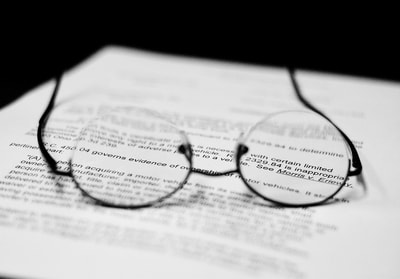What is Personal Injury Law?
Personal injury law refers to the legal remedies and defenses involved in civil lawsuits brought as a result of wrongful conduct. In fact, the word “tort” comes from a Latin term meaning twist, wrong, or harm. In contrast to criminal law, a tort action does not involve the government prosecuting the wrongdoer. Rather, these cases involve a private plaintiff seeking compensation (usually money) for the harm caused by the defendant’s actions.
Most personal injury cases are based on the doctrine of negligence. In essence, negligence requires every member of society to act responsibly and avoid putting others at risk. That is not to say that negligence will result each time someone gets hurt. The doctrine recognizes that some accidents are unavoidable. To establish liability, the plaintiff must show that a reasonably prudent person in the defendant’s position would have acted differently under the circumstances.
Common Torts and Defenses
Personal injury law encompasses a number of causes of action besides negligence. Many of these fall under the umbrella of intentional torts. As the name suggests, in these situations the defendant acts purposefully to harm the plaintiff. Examples include assault, battery, false imprisonment, trespass, theft, and infliction of emotional distress.
On the opposite end of the tort spectrum, there are scenarios in which defendants will be liable even though they did everything possible to avoid causing harm. This is referred to as strict liability. The law will hold a defendant strictly liable if someone is hurt while the defendant is engaging in a highly dangerous activity, even if the activity is legal and all precautions are taken.
Personal injury law refers to the legal remedies and defenses involved in civil lawsuits brought as a result of wrongful conduct. In fact, the word “tort” comes from a Latin term meaning twist, wrong, or harm. In contrast to criminal law, a tort action does not involve the government prosecuting the wrongdoer. Rather, these cases involve a private plaintiff seeking compensation (usually money) for the harm caused by the defendant’s actions.
Most personal injury cases are based on the doctrine of negligence. In essence, negligence requires every member of society to act responsibly and avoid putting others at risk. That is not to say that negligence will result each time someone gets hurt. The doctrine recognizes that some accidents are unavoidable. To establish liability, the plaintiff must show that a reasonably prudent person in the defendant’s position would have acted differently under the circumstances.
Common Torts and Defenses
Personal injury law encompasses a number of causes of action besides negligence. Many of these fall under the umbrella of intentional torts. As the name suggests, in these situations the defendant acts purposefully to harm the plaintiff. Examples include assault, battery, false imprisonment, trespass, theft, and infliction of emotional distress.
On the opposite end of the tort spectrum, there are scenarios in which defendants will be liable even though they did everything possible to avoid causing harm. This is referred to as strict liability. The law will hold a defendant strictly liable if someone is hurt while the defendant is engaging in a highly dangerous activity, even if the activity is legal and all precautions are taken.







